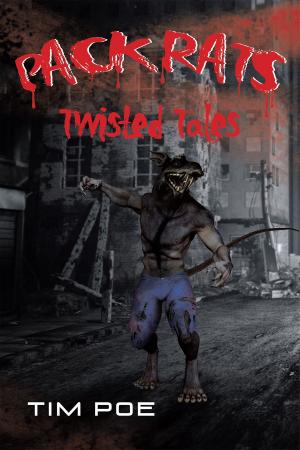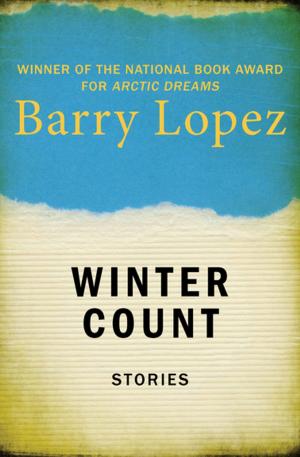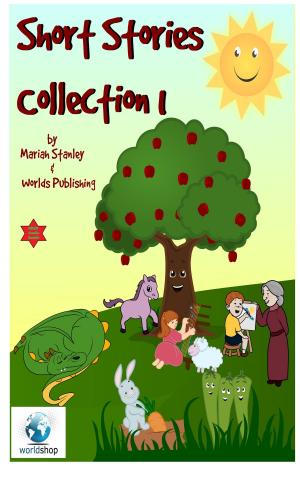| Author: | Jim Harrison | ISBN: | 9780802198020 |
| Publisher: | Grove/Atlantic, Inc. | Publication: | September 7, 2010 |
| Imprint: | Grove Press | Language: | English |
| Author: | Jim Harrison |
| ISBN: | 9780802198020 |
| Publisher: | Grove/Atlantic, Inc. |
| Publication: | September 7, 2010 |
| Imprint: | Grove Press |
| Language: | English |
The title novella of The Farmer's Daughter opens in the unforgettable voice of Sarah, a fifteen-year-old girl living a life of solitude in rural Montana, where she has recently moved with her father Frank and mother, Peppy, a strict Evangelical Christian. Peppy and Frank home-school Sarah but don’t fully understand her, and her only escape is in the rapture of playing music on her piano, riding around the gorgeous countryside on her horse with her dog in tow, and spending time with several important mentors, including Tim, a grizzled old cowboy. They teach her that there’s more to life than her fundamentalist mother wants her to know, and Sarah relishes the heartland education -- and the sexual awareness that comes with her budding womanhood. But then a swift series of events shatters Sarah's quiet existence; her mother runs off with another man, Tim dies of an untreated tumor, and, soon thereafter, while she is attending a local fair and rodeo, Sarah is roofied and sexually assaulted by a fiddler from Wyoming named Karl. The assault poisons her longed-for entry into normal teenage life, and throws Sarah into a downward spiral. Her once joyous sexuality gives way to a general disgust with humanity, and she is bent on revenge, determined to track down Karl and shoot him. On a college trip down to the University of Arizona, she intends "to investigate Karl’s environs," but ends up finding companionship and support in her aunt Rebecca and a Mexican botanist named Alfredo, both professors at the university. As she practices music with Alfredo and their relationship becomes more intimate, Sarah begins to question her revenge fantasies about Karl. The more she weights the consequences with the gratification the act of violence would bring, the more she realizes that she values her life and freedom more than her desire for revenge. Sarah tracks Karl to his parents' home in Wyoming, and is set to shoot him from a safe distance, but at the last moment shoots up his pickup truck instead, terrifying Karl but sparing his life. She returns to Montana, and Alfredo flies up to meet her father and drive her down to her first year of college in Arizona.
In the next novella Harrison picks up the thread of beloved recurring character Brown Dog, who when we last saw him was in Toronto to save his developmentally disabled adopted daughter Berry from being locked in an institution. But Toronto has run out of welcome -- as has the married woman whom BD has gotten involved with -- so when BD is contacted by the American Indian advocacy group who's been helping him out, with a crazy plan to sneak he and Berry back into the States, and a promise that Berry can go to a nice residential school with outdoors activities, he knows it's time to move on. The school's director has a son who is in an Indian rock band called Thunderskins, and they're going to sneak into the country aboard the band's tour bus, concealed inside the enormous stage drums. BD is still pining for his social worker Gretchen, of course, and when they get home she suggests that she's ready to become a parent and is considering him as a sperm donor. BD is not entirely comfortable with just being a donor, nor with the medical establishment's down-the-nose attitude to the middle-aged, broken down pulp cutter who presents himself for the pre-donation checkup. At first it seems that he and Gretchen are just too different to come to an agreement, but in the end, they find a way to make it work.
Harrison’s final tale, "Games of Night," is the memoir of a retired lycanthrope in contemporary times. Bitten by a Mexican hummingbird when he was a young man, the protagonist becomes instantly ravenous--for food, and sexually--and gains superhuman strength during the full moon. He quickly learns to isolate himself from other people during his "spells" to protect them, but still awakens after several days to disturbing reports of his feverish episodes of epic lust, physical appetite, athletic exertion, and sometimes acts of violence. But in many ways this werewolf is a normal guy--he still pines for his childhood sweetheart, and the woman with whom he had his first sexual experience (eventually reuniting with both as an adult); he wants to do the right thing and attempts to go on treatment for the rare blood disorder (brought on by the hummingbird bite, perhaps) with which he is (mis?)diagnosed. In the end, he settles down with the childhood sweetheart in rural Montana, as remote a place as he can find, and continues to manage his malady. "Games of Night" is funny, poignant, ribald, and all in all a suitable bookend to Wolf, The Beast God Forgot to Invent, and Harrison's other takes on the animal nature of man.
In the next novella Harrison picks up the thread of beloved recurring character Brown Dog, who when we last saw him was in Toronto to save his developmentally disabled adopted daughter Berry from being locked in an institution. But Toronto has run out of welcome -- as has the married woman whom BD has gotten involved with -- so when BD is contacted by the American Indian advocacy group who's been helping him out, with a crazy plan to sneak he and Berry back into the States, and a promise that Berry can go to a nice residential school with outdoors activities, he knows it's time to move on. The school's director has a son who is in an Indian rock band called Thunderskins, and they're going to sneak into the country aboard the band's tour bus, concealed inside the enormous stage drums. BD is still pining for his social worker Gretchen, of course, and when they get home she suggests that she's ready to become a parent and is considering him as a sperm donor. BD is not entirely comfortable with just being a donor, nor with the medical establishment's down-the-nose attitude to the middle-aged, broken down pulp cutter who presents himself for the pre-donation checkup. At first it seems that he and Gretchen are just too different to come to an agreement, but in the end, they find a way to make it work.
Harrison’s final tale, "Games of Night," is the memoir of a retired lycanthrope in contemporary times. Bitten by a Mexican hummingbird when he was a young man, the protagonist becomes instantly ravenous--for food, and sexually--and gains superhuman strength during the full moon. He quickly learns to isolate himself from other people during his "spells" to protect them, but still awakens after several days to disturbing reports of his feverish episodes of epic lust, physical appetite, athletic exertion, and sometimes acts of violence. But in many ways this werewolf is a normal guy--he still pines for his childhood sweetheart, and the woman with whom he had his first sexual experience (eventually reuniting with both as an adult); he wants to do the right thing and attempts to go on treatment for the rare blood disorder (brought on by the hummingbird bite, perhaps) with which he is (mis?)diagnosed. In the end, he settles down with the childhood sweetheart in rural Montana, as remote a place as he can find, and continues to manage his malady. "Games of Night" is funny, poignant, ribald, and all in all a suitable bookend to Wolf, The Beast God Forgot to Invent, and Harrison's other takes on the animal nature of man.
The title novella of The Farmer's Daughter opens in the unforgettable voice of Sarah, a fifteen-year-old girl living a life of solitude in rural Montana, where she has recently moved with her father Frank and mother, Peppy, a strict Evangelical Christian. Peppy and Frank home-school Sarah but don’t fully understand her, and her only escape is in the rapture of playing music on her piano, riding around the gorgeous countryside on her horse with her dog in tow, and spending time with several important mentors, including Tim, a grizzled old cowboy. They teach her that there’s more to life than her fundamentalist mother wants her to know, and Sarah relishes the heartland education -- and the sexual awareness that comes with her budding womanhood. But then a swift series of events shatters Sarah's quiet existence; her mother runs off with another man, Tim dies of an untreated tumor, and, soon thereafter, while she is attending a local fair and rodeo, Sarah is roofied and sexually assaulted by a fiddler from Wyoming named Karl. The assault poisons her longed-for entry into normal teenage life, and throws Sarah into a downward spiral. Her once joyous sexuality gives way to a general disgust with humanity, and she is bent on revenge, determined to track down Karl and shoot him. On a college trip down to the University of Arizona, she intends "to investigate Karl’s environs," but ends up finding companionship and support in her aunt Rebecca and a Mexican botanist named Alfredo, both professors at the university. As she practices music with Alfredo and their relationship becomes more intimate, Sarah begins to question her revenge fantasies about Karl. The more she weights the consequences with the gratification the act of violence would bring, the more she realizes that she values her life and freedom more than her desire for revenge. Sarah tracks Karl to his parents' home in Wyoming, and is set to shoot him from a safe distance, but at the last moment shoots up his pickup truck instead, terrifying Karl but sparing his life. She returns to Montana, and Alfredo flies up to meet her father and drive her down to her first year of college in Arizona.
In the next novella Harrison picks up the thread of beloved recurring character Brown Dog, who when we last saw him was in Toronto to save his developmentally disabled adopted daughter Berry from being locked in an institution. But Toronto has run out of welcome -- as has the married woman whom BD has gotten involved with -- so when BD is contacted by the American Indian advocacy group who's been helping him out, with a crazy plan to sneak he and Berry back into the States, and a promise that Berry can go to a nice residential school with outdoors activities, he knows it's time to move on. The school's director has a son who is in an Indian rock band called Thunderskins, and they're going to sneak into the country aboard the band's tour bus, concealed inside the enormous stage drums. BD is still pining for his social worker Gretchen, of course, and when they get home she suggests that she's ready to become a parent and is considering him as a sperm donor. BD is not entirely comfortable with just being a donor, nor with the medical establishment's down-the-nose attitude to the middle-aged, broken down pulp cutter who presents himself for the pre-donation checkup. At first it seems that he and Gretchen are just too different to come to an agreement, but in the end, they find a way to make it work.
Harrison’s final tale, "Games of Night," is the memoir of a retired lycanthrope in contemporary times. Bitten by a Mexican hummingbird when he was a young man, the protagonist becomes instantly ravenous--for food, and sexually--and gains superhuman strength during the full moon. He quickly learns to isolate himself from other people during his "spells" to protect them, but still awakens after several days to disturbing reports of his feverish episodes of epic lust, physical appetite, athletic exertion, and sometimes acts of violence. But in many ways this werewolf is a normal guy--he still pines for his childhood sweetheart, and the woman with whom he had his first sexual experience (eventually reuniting with both as an adult); he wants to do the right thing and attempts to go on treatment for the rare blood disorder (brought on by the hummingbird bite, perhaps) with which he is (mis?)diagnosed. In the end, he settles down with the childhood sweetheart in rural Montana, as remote a place as he can find, and continues to manage his malady. "Games of Night" is funny, poignant, ribald, and all in all a suitable bookend to Wolf, The Beast God Forgot to Invent, and Harrison's other takes on the animal nature of man.
In the next novella Harrison picks up the thread of beloved recurring character Brown Dog, who when we last saw him was in Toronto to save his developmentally disabled adopted daughter Berry from being locked in an institution. But Toronto has run out of welcome -- as has the married woman whom BD has gotten involved with -- so when BD is contacted by the American Indian advocacy group who's been helping him out, with a crazy plan to sneak he and Berry back into the States, and a promise that Berry can go to a nice residential school with outdoors activities, he knows it's time to move on. The school's director has a son who is in an Indian rock band called Thunderskins, and they're going to sneak into the country aboard the band's tour bus, concealed inside the enormous stage drums. BD is still pining for his social worker Gretchen, of course, and when they get home she suggests that she's ready to become a parent and is considering him as a sperm donor. BD is not entirely comfortable with just being a donor, nor with the medical establishment's down-the-nose attitude to the middle-aged, broken down pulp cutter who presents himself for the pre-donation checkup. At first it seems that he and Gretchen are just too different to come to an agreement, but in the end, they find a way to make it work.
Harrison’s final tale, "Games of Night," is the memoir of a retired lycanthrope in contemporary times. Bitten by a Mexican hummingbird when he was a young man, the protagonist becomes instantly ravenous--for food, and sexually--and gains superhuman strength during the full moon. He quickly learns to isolate himself from other people during his "spells" to protect them, but still awakens after several days to disturbing reports of his feverish episodes of epic lust, physical appetite, athletic exertion, and sometimes acts of violence. But in many ways this werewolf is a normal guy--he still pines for his childhood sweetheart, and the woman with whom he had his first sexual experience (eventually reuniting with both as an adult); he wants to do the right thing and attempts to go on treatment for the rare blood disorder (brought on by the hummingbird bite, perhaps) with which he is (mis?)diagnosed. In the end, he settles down with the childhood sweetheart in rural Montana, as remote a place as he can find, and continues to manage his malady. "Games of Night" is funny, poignant, ribald, and all in all a suitable bookend to Wolf, The Beast God Forgot to Invent, and Harrison's other takes on the animal nature of man.















